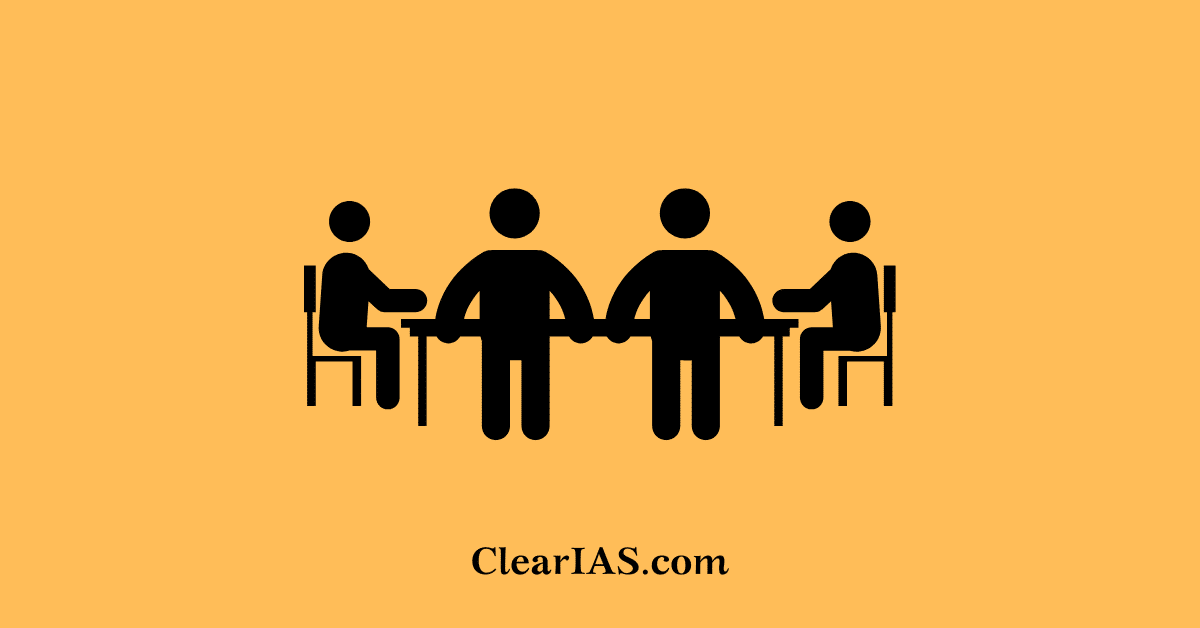 Under our free online study materials for Polity, we have been doing detailed analysis of Indian Constitution – article-wise – a unique approach to learn Indian Constitution for Prelims, Mains and Interview. We follow the same constitutional order and wordings as in the Constitution of India.
Under our free online study materials for Polity, we have been doing detailed analysis of Indian Constitution – article-wise – a unique approach to learn Indian Constitution for Prelims, Mains and Interview. We follow the same constitutional order and wordings as in the Constitution of India.
This approach not only helps in memorizing and connecting articles fast, but also to answer questions which are asked directly using wordings mentioned in Constitution. We have so far covered up-to Article 162, and related extra-constitutional laws/events. In coming days, when our team writes on Polity, we plan to cover the remaining articles/parts one-by-one.
PART VI of the Constitution deals with the other half of Indian federalism, ie the States. Article from 152-237 deals with various provisions related to States. It covers the executive, legislature and judiciary wings of the states. Articles 163-164 deals with Council of Ministers (CoM) in states.
Article 163: Council of Ministers to aid and advise Governor
(1) There shall be a Council of Ministers with the Chief Minister at the head to aid and advise the Governor in the exercise of his functions, except in so far as he is by or under this Constitution required to exercise his functions or any of them in his discretion.
(2) If any question arises whether any matter is or is not a matter as respects which the Governor is by or under this Constitution required to act in his discretion, the decision of the Governor in his discretion shall be final, and the validity of anything done by the Governor shall not be called in question on the ground that he ought or ought not to have acted in his discretion.
(3) The question whether any, and if so what, advice was tendered by Ministers to the Governor shall not be inquired into in any court.
164: Other provisions as to Ministers
(1) The Chief Minister shall be appointed by the Governor and the other Ministers shall be appointed by the Governor on the advice of the Chief Minister, and the Ministers shall hold office during the pleasure of the Governor:
Provided that in the States of Bihar, Madhya Pradesh and Orissa, there shall be a Minister in charge of tribal welfare who may in addition be in charge of the welfare of the Scheduled Castes and backward classes or any other work.
(1A) The total number of Ministers, including the Chief Minister, in the Council of Ministers in a State shall not exceed fifteen per cent. of the total number of members of the Legislative Assembly of that State:
Provided that the number of Ministers, including the Chief Minister in a State shall not be less than twelve:
Provided further that where the total number of Ministers including the Chief Minister in the Council of Ministers in any State at the commencement of the Constitution (Ninety-first Amendment) Act, 2003 exceeds the said fifteen per cent. or the number specified in the first proviso, as the case may be, then the total number of Ministers in that State shall be brought in conformity with the provisions of this clause within six months from such date* (7.1.2004: vide Notification No. S.O. 21(E), dated 7.1.2004.) as the President may by public notification appoint.
(1B) A member of the Legislative Assembly of a State or either House of the Legislature of a State having Legislative Council belonging to any political party who is disqualified for being a member of that House under paragraph 2 of the Tenth Schedule shall also be disqualified to be appointed as a Minister under clause (1) for duration of the period commencing from the date of his disqualification till the date on which the term of his office as such member would expire or where he contests any election to the Legislative Assembly of a State or either House of the Legislature of a State having Legislative Council, as the case may be, before the expiry of such period, till the date on which he is declared elected, whichever is earlier.
(2) The Council of Ministers shall be collectively responsible to the Legislative Assembly of the State.
(3) Before a Minister enters upon his office, the Governor shall administer to him the oaths of office and of secrecy according to the forms set out for the purpose in the Third Schedule.
(4) A Minister who for any period of six consecutive months is not a member of the Legislature of the State shall at the expiration of that period cease to be a Minister.
(5) The salaries and allowances of Ministers shall be such as the Legislature of the State may from time to time by law determine and, until the Legislature of the State so determines, shall be as specified in the Second Schedule.
Info-bits related to Council of Ministers in States
- President of India does not have existence without council of ministers, but Governor has (at the time of President’s rule).
- The minimum strength of council of ministers in a state as per Constitution is 12 and maximum is 15 percent of Legislative Assembly.
- Oaths for ministers : oaths of office and of secrecy.
- The Governor has discretionary powers and the validity of acts done using the discretionary powers cannot be questioned.





Good Attempt.
Also start something substantial on S and T.
Sir is there any way to read all these online study materials in hindi language? As I am a hindi medium student ! That’s why !
Is this material of polity enough or we need to read more books
Sir, Can a minister who is not yet a member of any of the Houses vote in the proceedings of the parliament?
No